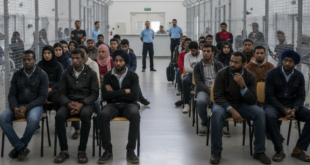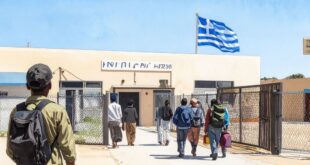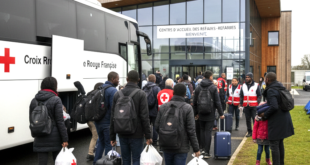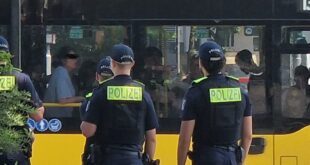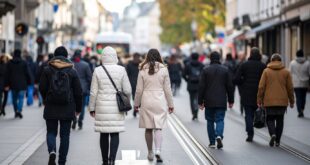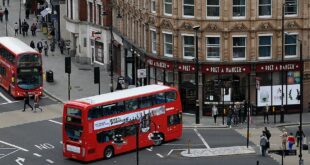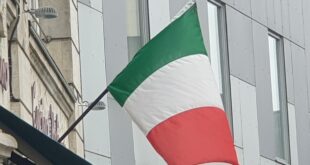CNN report showing trade in sub-Saharan migrants in Libya has sparked outrage in Africa and the global Black community, Sola Jolaoso reports.
A grainy cell phone video showing unidentified African men being sold in an auction in Libya was obtained by CNN last month. One of the ‘slaves’ being sold is a Nigerian, whom the American news channel estimated to be in his twenties.
He had been offered up for sale as one of a group of “big strong boys for farm work,” according to the auctioneer.
After seeing the footage of the slave auction, CNN said it worked to verify its authenticity and travelled to Libya to investigate further. A correspondent of the global broadcaster, carrying concealed cameras, recorded an auction session near Tripoli at which 12 people were sold off for as little as US$400 “in the space of six or seven minutes”. The report of the CNN investigations was finally published on Thursday.
African organisations and prominent persons have reacted angrily to the report.

The African Union on Friday called for Libyan authorities to investigate the “slave markets” operating in the conflict-torn nation.
Guinean President Alpha Conde, who is also Chairman of the African Union, demanded an enquiry and prosecutions relating to what he termed a “despicable trade… from another era”.
“These modern slavery practices must end and the African Union will use all the tools at its disposal,” Conde added.
Senegal’s government, commenting on Facebook, described the report as a “blight on the conscience of humanity”.
Conde further appealed to the Libyan authorities to “reassess migrants’ detention conditions” following revelations over squalid jails and detention centres that await migrants who are caught trying to reach the coast.
Niger’s President Mahamadou Issoufou meanwhile said that the issue had made him “deeply angry” and urged Libyan authorities and international organizations to do “everything possible to stop this practice.”
READ ALSO Protests in Berlin against Libyan slave auction
Agence France Presse reported that protesters gathered outside the Libyan embassies in several other African capital cities including Bamako, Mali and Conakry, Guinea, at the weekend.
Burkina Faso’s foreign minister has recalled its ambassador to Libya over the reports of the alleged slave auction. The Reuters news agency reported that Foreign Minister Alpha Barry announced the decision by President Roch Marc Christian Kabore in a news conference as follows:
“The president of Burkina Faso has decided to recall the ambassador to Tripoli, General Abraham Traore, for a consultation,” Barry said. He added that he had also “summoned the Libyan charge d’affairs in Ouagadougou to express our indignation at these images that belong to other centuries, images of the slave trade”. President Kabore has also demanded information from Libya about the fate of some 30 Burkinabe migrants detained in the camps, Barry added.
Nigerian President Muhammadu Buhari has also been reported to have set up an inter-ministerial panel to look into the issue.
Meanwhile, Libya has opened an investigation into the practice, CNN reported Friday and pledged to return those taken as slaves to their countries of origin.

Black organisations from Europe to the US have also been reacting to the report. Persons of African descent trooped out on the streets of Paris on Saturday to protest the despicable trade.
About a thousand people turned up at the protest in front of the Libyan Embassy in Paris following calls by several prominent anti-slavery groups and a number of celebrities of African origin, including soccer star Didier Drogba and former Miss France Sonia Rolland.
Carrying signs reading “No to slavery in Libya,” the demonstrators then marched towards the Champs-Elysees, where they were stopped by riot police cordons.
Protests are planned in Berlin and London later this week.
Black activists in the United States have also been expressing their disgust on the issue on social media.
Legendary Ivorian reggae musician, Alpha Blondy, known in private life as Seydou Kone, has waded into the debate, calling on sub-Saharan African leaders to protect their citizens wherever they find themselves.
The issue has also been a main discussion point among African gatherings in Europe with most blaming their governments for the situation that forces their citizens to troop out daily in search of greener pastures outside the continent.
Libya as dead end
As a result of increasing co-operation between the EU and the UN-backed Government of National Unity in Tripoli, the number of migrant arrivals in Europe has dropped dramatically. From August to October, arrivals in Italy, the main entry point, have dropped by more than 80 per cent. This has resulted in hundreds of thousands of migrants getting trapped in Libya, where they are exposed to human rights abuse.
In a country with two governments competing for legitimacy and hundreds of armed militias which are not controlled by either of the factional authorities, Libya is a de facto lawless place. While that’s bad enough for Libyans, migrants bear the full brunt of the unfortunate situation in the North African country.

Irregular migrants are not only arrested and detained by the government but also by militia groups and criminal networks in Libya. In early October, more than 16,000 migrants, mostly sub-Saharans, were rescued in Sabratha, a town located 80km west of Tripoli. About 6,000 others are believed to still being held by trafficking gangs in the area.
Migrants in the custody of criminal gangs and militias have to buy their freedom by paying a ransom or they could be sold into labour or sex slavery. Many migrants have also been killed for the transplantation of their organs to sick Libyans.
The CNN report is not the first to draw attention to slave markets in Libya. In April 2017, the International Organisation for Migration reported that the selling of sub-Saharan Africans was rife in the country, which has slid into violent chaos since the overthrow of Gaddafi in 2011.
Many organisations are calling on African governments to work with the Libyan authorities to repatriate their citizens from the North African country.
READ ALSO Germany’s Black community to protest against Libya’s slave trade
 THE AFRICAN COURIER. Reporting Africa and its Diaspora! The African Courier is an international magazine published in Germany to report on Africa and the Diaspora African experience. The first issue of the bimonthly magazine appeared on the newsstands on 15 February 1998. The African Courier is a communication forum for European-African political, economic and cultural exchanges, and a voice for Africa in Europe.
THE AFRICAN COURIER. Reporting Africa and its Diaspora! The African Courier is an international magazine published in Germany to report on Africa and the Diaspora African experience. The first issue of the bimonthly magazine appeared on the newsstands on 15 February 1998. The African Courier is a communication forum for European-African political, economic and cultural exchanges, and a voice for Africa in Europe.




